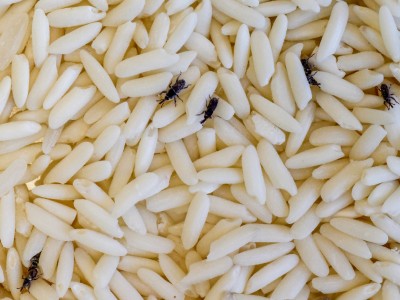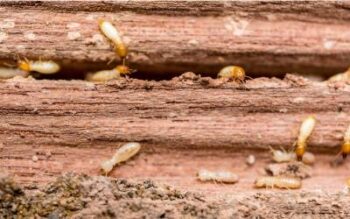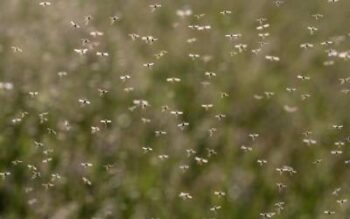
Cookies, pies, gingerbread houses… you name it! Many of us love taking the time to bake our favorite treats during the holiday season. Unfortunately, there are several species of insects that could put a damper on your plans by invading your kitchen and eating through some of your stored dry foods. These so-called “pantry pests” are notorious for infesting homes, food processing plants, and grocery stores all across America. Not only are infestations off-putting to discover, but they can also be incredibly tough to get rid of. Thankfully there are a few steps you can take to keep pantry pests out of your home in the first place. Read on to learn top tips from the technicians at Eastern Pest Services!
Common Pantry Pests in New Jersey
Getting familiar with the common pantry pests in your area is the first step to creating an effective prevention plan. Doing so will allow you to anticipate common behaviors and identify early signs of an infestation. Here are the most common pantry pests in New Jersey:
- Indian meal moth: As larvae, Indian meal moths are yellowish in color and have pinkish heads. As adults, they have wings that are covered with copper or bronze scales on the bottom half. These tiny moths are drawn to coarse flour, whole wheat, cornmeal, nuts, and other dried food products.
- Cigarette beetle: Named after their love of infesting tobacco products, cigarette beetles are small and dull brown in color. They measure roughly 2 to 3 mm in length, which makes them challenging to identify or catch. In addition to tobacco products, these pests regularly eat through other pantry items.
- Drugstore beetle: Also commonly known as “bread beetles” for their habit of eating up bread products, drugstore beetles are another common pantry pest in New Jersey. They can be difficult to tell apart from cigarette beetles, though they have slightly thinner bodies and brighter coloration.
- Sawtoothed grain beetle: With a slender and flat body that measures just ⅛” in length, sawtoothed grain beetles can be difficult to spot. They commonly infest dried goods but prefer dust or crumbs or grain that are small enough for them to eat. Despite having wings, these beetles generally do not fly.
- Confused flour beetle: These beetles are considered to be the most economically dangerous in the United States because of how quickly they reproduce and eat through grain products. Adults can live for 3 or more years, and they have a small reddish-brown body that is flat to the ground.
- Weevil: Also commonly known as “flour bugs”, these snout-nosed beetles are known for feeding on rice, seeds, cereals, and flour. Adults are strong fliers and are attracted to light. Females typically lay 300-400 eggs inside of seeds or grain kernels, which their larvae will feed on after hatching.
How to Prevent Pantry Pests
Investing a little bit of time and effort into pantry pest prevention could help you skip the stress of a full-blown infestation. To keep pantry pests out of your kitchen, always:
- Ensure packaging is undamaged prior to purchasing food
- Avoid leaving any food – even dry goods – out in the open
- Store your food in sealed airtight containers
- Keep your pantry doors closed whenever possible
- Ensure that your door and window screens are intact
Professional Pantry Pest Prevention
Pantry pests can be very difficult to avoid, and even more challenging to get rid of. Whether you’re struggling with an active infestation or just want to make sure your kitchen is always bug-free, the experts at Eastern Pest Services are here to help! Our trained technicians know how to handle any New Jersey pest, and they will implement safe solutions that will provide you with long-term protection. To get a quote, call us today!





